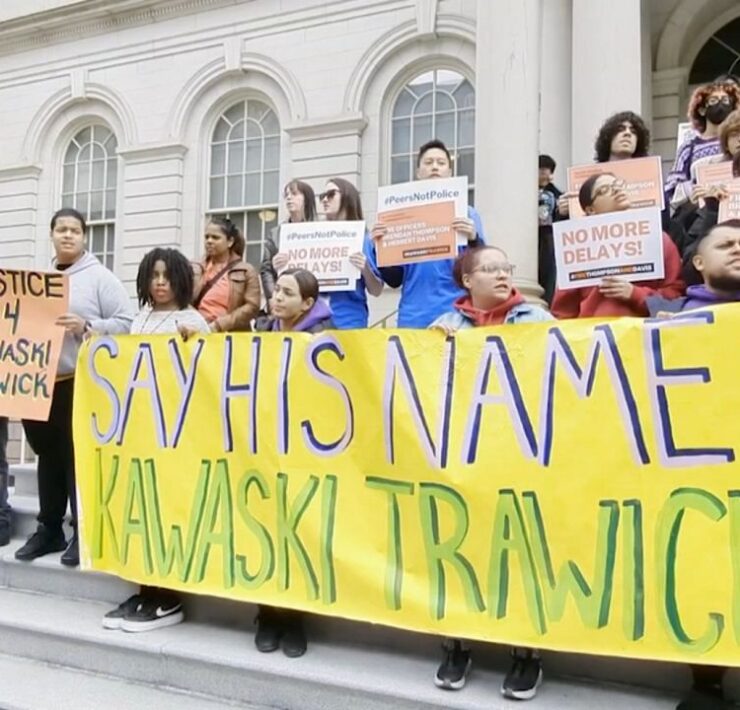LGBTQ Folks Demand Police Accountability in Face of Prejudice

OUT FRONT Magazine's Creative Director & Head of Design @…
We as a community are calling for greater police misconduct accountability.
Police profiling amongst queer people is on the rise, according to a news report released Thursday by the Williams Institute. The report states that, in a public setting, queer individuals were six times more likely than straight, cisgender individuals to be stopped. After researchers analyzed data from the Generation Study and the Police-Public Contact Survey, their results indicated queer people are 6 percent more likely to be stopped than the cisgender people at 1 percent.
These disproportionate rates of law enforcement contact mistreatment remained consistent across the board. According to the Williams Institute, this mistreatment directly correlates with the results stating members of the LGBTQ community “feel lower levels of trust with law enforcement officers” overall. The data reflected queer people were more than three times as likely to not contact police officers for future disputes.
Although the Police-Public Contact Survey didn’t cite specific encounters regarding forms of abuse such as name calling or violent behaviors, the survey did however disclose queer respondents found officers were more likely to behave in an inappropriate manor during their interaction. While 91 percent of straight, cisgender respondents reported they were satisfied with their law enforcement encounters; only 81 percent of queer respondents felt the same.
This type of systemic abuse isn’t a new dilemma; it’s been one for years, and that’s why we must use our voices to continue to shed light onto the not-so-hot topic. In 2015, the Williams Institute published a similar report finding 48 percent of LGBTQ respondents experienced police misconduct while reporting violence to officers.
“In view of the history of criminalization and victimization of LGBTQ people, as police reform is being discussed nationally, it is important that reforms include attention to policing of LGBTQ populations across race and gender,” says Ilan H Meyer, the study’s author and distinguished senior scholar on public policy at the Williams Institute.
Trans members of the community specifically are more likely to cite a negative encounter with law enforcement. The National Center of Transgender Equality conducted a survey finding that a whopping 58 percent of respondents experienced misconduct or a form of harassment when interacting with officers who knew their identity. These reports range everywhere from purposefully misgendering respondents to verbal, physical and sexual assault.
What's Your Reaction?
OUT FRONT Magazine's Creative Director & Head of Design @ Q Publishing House: She/They. Queer writer residing in Denver, Co. Inspired by LGBTQ+ stories.










